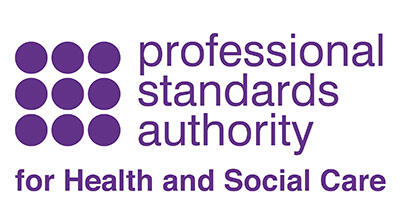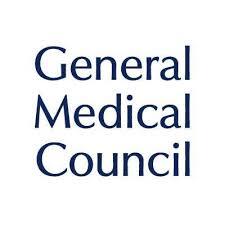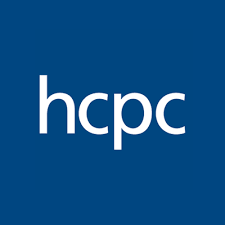
Regulated Professions
The Professional Standards Authority for Health and Social Care oversees 10 UK healthcare professional regulators to make sure they are protecting the public.
Find out more about the UK requirements and standards for regulated health and care professionals to help you navigate your career path.
Statutorily regulated mental health professions
In the UK, several mental health professions within the health and social care sector are statutorily regulated. This means practitioners are legally required to be registered with a professional regulatory body to practise using a protected title.

Psychiatrist
Regulated by the General Medical Council (GMC)
- Requires a medical degree plus specialist training in psychiatry
- Diagnoses mental illnesses, may provide therapy
- Can prescribe medication

Mental Health Nurse (MHN)
Regulated by the Nursing and Midwifery Council (NMC)
- Requires a Nursing degree with mental health specialism
- Provides care and treatment to individuals with mental health conditions
- Can only prescribe medication as an independent prescriber after completing a recognised prescribing course

Occupational Health Nurse (OHN)
Regulated by the Nursing and Midwifery Council (NMC)
- Requires a Nursing degree, and whilst not mandatory, many nurses undertake a specialist post-graduate qualification in occupational health
- Focuses on the health and well-being of people at work, providing advice and support to employees, employers, and managers to ensure a safe and healthy work environment.
- Can only prescribe medication as an independent prescriber after completing a recognised prescribing course.

Psychologist
Regulated by the Health & Care Professions Council (HCPC)
Clinical Psychologist
- Requires a Doctorate in Clinical Psychology (DClinPsy)
- Provides assessment, diagnosis, and psychological therapies
- Does not prescribe medication
Counselling Psychologist
- Requires a Doctorate in Counselling Psychology
- Focuses on talking therapies, relationships, and emotional difficulties
- Does not prescribe medication
Educational Psychologist
- Requires a Doctorate in Educational Psychology
- Specialises in supporting children and young people in schools, working with learning, behavioural, and emotional issues
- Does not prescribe medication
Forensic Psychologist
- Requires a Master's or Doctorate in Educational Psychology
- Works in prisons, probation, or criminal justice settings to assess risk, provides rehabilitation, and contributes to legal processes
- Does not prescribe medication
Health Psychologist
- Requires a Master's or Doctorate in Health Psychology
- Focuses on how psychological factors affect health and illness, working in health promotion, public health, and behaviour change
- Does not prescribe medication
Occupational Psychologist
- Requires a Master's degree in Occupational Health Psychology
- Applies psychology to the workplace (e.g., productivity, wellbeing), usually working in business, HR, consultancy, or government settings
- Does not prescribe medication
Sport and Exercise Psychologist
- Requires a Master's degree in Sports and Exercise Psychology
- Works with athletes and clients to improve performance and wellbeing, may also support mental health through exercise interventions
- Does not prescribe medication
Practitioner Psychologist
- Requires a Doctorate in Clinical Psychology (DClinPsy)
- Umbrella term used for HCPC-registered psychology specialties (e.g., clinical, forensic)
- Protected title under law
- Does not prescribe medication

Creative Arts Therapist
Regulated by the Health & Care Professions Council (HCPC)
Art Therapist / Art Psychotherapist
- Requires a Master's level course in Art Therapy or Art Psychotherapy
- Uses visual art media (e.g. drawing, painting, sculpture) within a therapeutic relationship
- Aimed at helping clients express thoughts and feelings that may be hard to articulate in words
- Does not prescribe medication
Dramatherapist
- Requires a Master's level course in Dramatherapy
- Uses drama, storytelling, movement, and role play therapeutically to encourage self-expression, emotional processing, and personal insight
- Does not prescribe medication
Music Therapist
- Requires a Master's level course in Music Therapy
- Uses music (playing, listening, improvising) as the medium for therapy to suppors emotional expression, communication, and psychological healing
- Does not prescribe medication